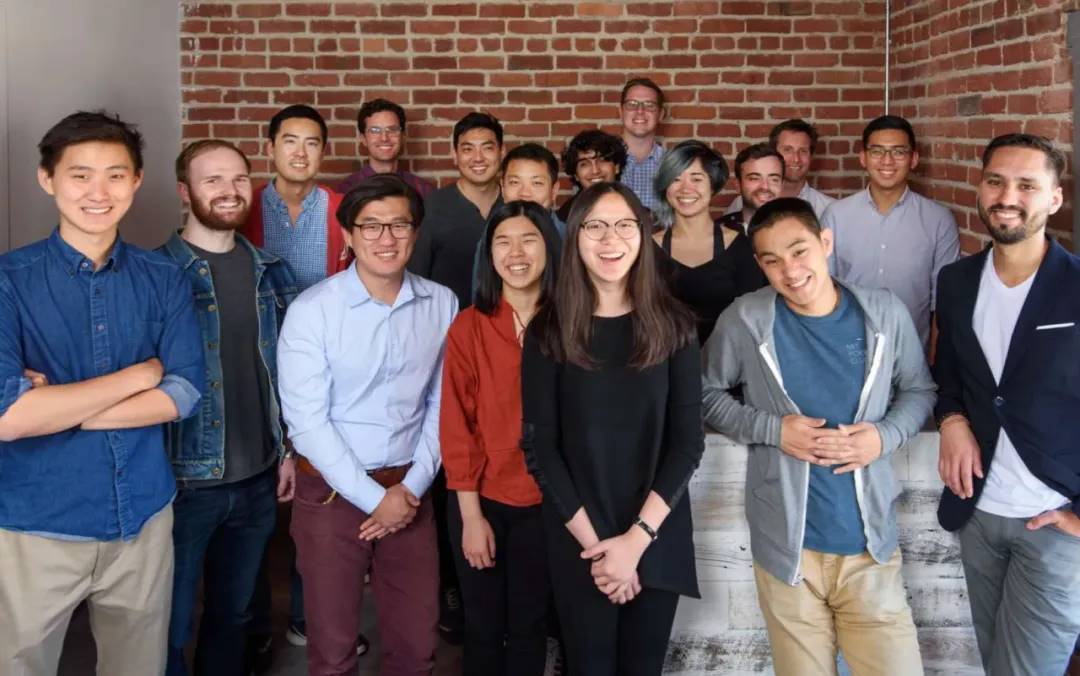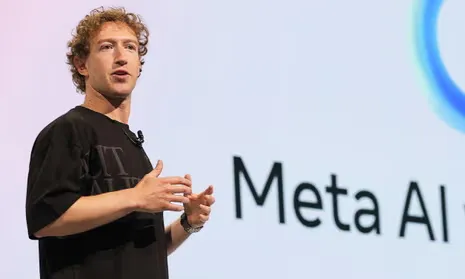Not only the large model itself, but Meta also aims to become a major player in AI infrastructure.
Author: Jingyu

"What is the most expensive thing in the 21st century? Talent!"
The value of Ge You's lines in "No Thief in the World" from years ago continues to rise.
On June 10 local time, media reports revealed that Meta will acquire a 49% stake in Scale AI for $14.9 billion (approximately 106.6 billion RMB), and the latter's co-founder, Alexandr Wang, will become the head of Meta's newly established "Super Intelligence Group."
Based on the equity ratio, this transaction could mean that Wang and his team might receive $7.4 billion, making it one of the most expensive "poaching" deals in Silicon Valley—considering that Google acquired the DeepMind team for only $600 million in 2014.
Zuckerberg wrote in an internal letter: "We will build the future of AI together." Given the setbacks with the Llama 4 model and the continuous loss of personnel in the AI team, what is Meta's aim in making such a significant bet on Scale AI? With Scale AI and Alexandr Wang, can Meta find its place again in the upcoming AI battle?
01 The Most Expensive "Swing Voter"
As the fastest-growing company in Silicon Valley during the AI era, Scale AI's valuation has skyrocketed to $13.8 billion in just five years. However, Meta's acquisition of a 49% stake in the company comes at a cost of $14.9 billion.
The 49% stake is clearly a consideration for antitrust review, but what Meta and Zuckerberg want is the person of co-founder Alexandr Wang—this 19-year-old entrepreneurial genius will lead Meta's newly established Super Intelligence Laboratory, guiding Meta AI into a new era.
Interestingly, it is not entirely accurate to say that Meta has completely bought Wang, as he will continue to serve as the CEO of Scale AI, meaning that Wang and Scale AI will maintain their "independence." This could also be the most expensive "dual allegiance" in history, and if Scale AI continues to grow, Wang may become the fastest-growing entrepreneur in Silicon Valley, bar none.
Zuckerberg's eagerness to invest a rare amount of money in Scale AI and Wang reflects his anxiety over Meta's gradual lag in the AI race.
Although Meta launched the Llama 4 Behemoth model with a parameter scale of 18 trillion in 2024, it still lags behind GPT-4.5 by about 12% in key metrics such as multimodal understanding and long-text reasoning. More embarrassingly, issues with the quality of Llama's training data have been exposed: industry estimates suggest that about 30% of the corpus comes from low-quality social media content, leading to frequent erroneous outputs from the model.

The Scale AI team, just two years after its establishment, with Wang on the far left | Image source: Scale AI
"We lack not computing power, but clean data and top engineering talent." An anonymous Meta AI researcher complained. This explains why Zuckerberg is willing to spend heavily to bring in Wang—a "infrastructure fanatic" known for data labeling technology.
As the highest-valued data labeling company, Scale AI's rise is not without reason. According to reports, Scale AI's moat lies in its ability to transform raw data into AI-usable fuel:
Military-grade labeling accuracy: With a "double insurance" of mixed human labelers and AI quality checks, its data error rate is only 0.3%, while the industry average is 5% (according to the company).
Multimodal data monopoly: It possesses the world's largest video action labeling database (including 120 million human action data points) and a cross-language text dataset (covering 217 languages).
In fact, spending $14.9 billion to acquire "half" of Scale AI and Wang himself, Meta's ambition goes beyond just the AI large model itself.
02 Transforming into AI Infrastructure to Address B-end Shortcomings
Data, computing power, and models are the three essential elements in the field of large models. As a social giant, Meta has a natural advantage in data and computing power, but the "data" aspect needs to be put in quotes, because while Meta's data volume is large, if the quality is poor, it is not very useful for AI model training.
"Every GPT response you see is backed by 500 data points we labeled." Wang's statement explains Meta's anxiety. When OpenAI trains smarter models using Scale AI's data, Meta is stuck on its own social data island. Acquiring Scale AI is equivalent to directly taking over a competitor's "ammunition depot."
Scale AI holds 35% of the global AI training data traffic, serving top clients from the Pentagon to OpenAI. Engineers at Meta's research institute privately complain: "When we trained with Llama 3, 30% of the computing power was wasted on cleaning garbage data, while Scale AI's labeling accuracy can reach 99.7%."
With Scale AI's precise data cleaning and labeling, industry estimates suggest that Meta could reduce its training data contamination rate from 15% to 2%, shortening the training cycle of the next-generation Llama 5 by 40%. Insiders reveal that the "Llama 5 Behemoth" currently being tested has a parameter scale of 30 trillion, specifically designed to tackle AGI.
At the same time, Scale AI's labeling system has been deeply adapted to Meta's custom AI chip architecture, forming a closed loop of "data labeling-model training-hardware optimization," which could potentially reduce the inference cost of the Llama model to one-third of GPT-4o.
It can be said that with the introduction of Scale AI, Meta's Llama model will see significant optimization in training quality, efficiency, and cost.
In fact, the integration of Scale could even reshape Meta's entire strategy in the AI competition. Compared to Google and Microsoft, Meta, lacking a cloud computing platform, has only been able to operate in the C-end. With Scale's capabilities, Meta plans to provide Scale AI data services through cloud platforms like AWS/Azure, building an ecosystem similar to Microsoft's "Copilot+OpenAI," turning competitors into customers.
If data is the oil of the new era, then by purchasing Scale AI, the largest "data refinery," Meta has already mastered a significant portion of the AI infrastructure system.

Meta is gradually falling behind in the AI competition | Image source: Meta
Of course, it remains to be seen whether competitors like OpenAI and Anthropic will accept this, as Meta has only acquired half of Scale AI (and half of Wang), but it is clearly enough to alert the former to Scale AI's neutral position, prompting OpenAI to accelerate its collaboration with Scale AI's competitor Handshake.
However, given Scale AI's overwhelming advantage in data labeling, it is unrealistic for companies like OpenAI to immediately sever ties with Scale AI. At least in the short term, AI giants still need Scale AI's services.
Even if Scale AI's previous clients gradually reduce their orders, Meta and Scale AI have already planned new revenue sources—government and defense clients. According to reports, Scale AI has secured over $200 million in government contracts from the U.S. military. At the same time, Scale AI is also expanding into vertical fields of AI applications tailored for defense, and Meta's enterprise sales capabilities and endorsement will undoubtedly provide sufficient momentum for Scale AI's future development.
Industry insiders speculate that the massive deal between Meta and Scale AI includes a hidden bet: if Scale AI's revenue growth in the next three years falls below 80%, Meta has the right to acquire the remaining shares at a discount—this means Wang must not only "make Meta AI great again," but also ensure that Scale AI continues to grow rapidly in revenue. The B-end business will clearly become a new source of growth for both parties.
For the Meta team, even with Wang joining as the head of the Super Intelligence Laboratory while "straddling two boats," he can create a strong "catfish effect." In Silicon Valley's AI community, Meta has always been known for its strong academic atmosphere, and the open-source and inclusive nature of Llama is a result of its academic thinking. However, Wang's strong advocacy for "data thinking" will undoubtedly impact and change Meta's existing AI team.
According to media reports, shortly after Wang joined Meta, he cut three academic projects and pushed the team towards a more "practical" direction.
If we disregard antitrust obstacles, Meta's massive bet on Scale AI and Wang could reshape Meta's role and development direction in the fierce AI competition, not only allowing Meta to quickly close the gap with competitors in the model field but also enabling this social giant to transition from application to AI infrastructure.
The essence of this gamble is that Meta is attempting to rewrite the rules of AI competition with capital power. As Silicon Valley analyst Sarah Guo stated: "While everyone is building cars, Meta has bought the entire highway—no matter who is in the car, they all have to pay a toll."
免责声明:本文章仅代表作者个人观点,不代表本平台的立场和观点。本文章仅供信息分享,不构成对任何人的任何投资建议。用户与作者之间的任何争议,与本平台无关。如网页中刊载的文章或图片涉及侵权,请提供相关的权利证明和身份证明发送邮件到support@aicoin.com,本平台相关工作人员将会进行核查。




